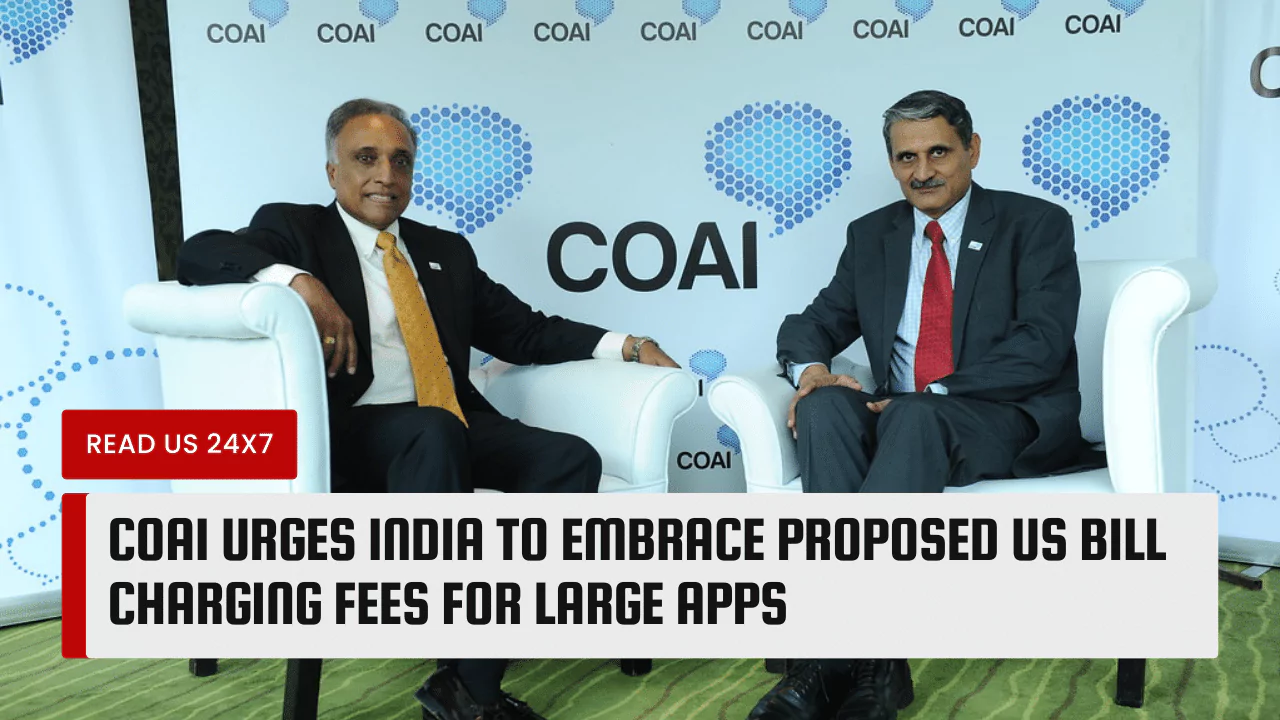The Cellular Operators Association of India (COAI) has urged the Indian government to adopt a proposed US bill that would charge fees from large internet apps such as Facebook, Google, and Netflix. The bill aims to make these apps contribute to the costs of building and maintaining broadband infrastructure and to lower broadband prices for consumers. The COAI believes that such a bill would benefit India in terms of revenue generation, affordability, and fair competition.
Proposed US Bill to Charge Fees from Large Apps
The US bill, titled the “Internet Freedom and Broadband Deployment Act of 2023”, was introduced by Senator John Thune in April 2023. The bill proposes to impose a fee of 0.5% on the annual gross revenue of internet apps that have more than 100 million monthly active users in the US. The fee would be collected by the Federal Communications Commission (FCC) and distributed to the states for broadband deployment and maintenance.
The bill is aimed at making large internet apps pay their fair share of the costs of providing broadband access to their users, especially in rural and underserved areas. The bill also claims that by reducing the burden on broadband providers, it would help lower the broadband prices for consumers and increase the adoption of broadband services.
Benefits of the Bill for India
The COAI, which represents the major telecom operators in India, has expressed its support for the US bill and has urged the Indian government to adopt a similar policy. The COAI argues that such a policy would have several benefits for India, such as:
- Increased revenue for infrastructure development: The COAI estimates that charging a fee of 0.5% on the annual gross revenue of large internet apps in India would generate around Rs. 15,000 crore per year, which could be used to fund the expansion and improvement of broadband infrastructure in the country. This would help bridge the digital divide and provide high-speed internet access to more people, especially in rural and remote areas.
- Lowering broadband costs for consumers: The COAI also claims that by charging fees from large internet apps, the broadband providers would be able to reduce their tariffs and offer more affordable plans to consumers. This would increase the demand for broadband services and create a positive feedback loop for the telecom sector.
- Leveling the playing field for smaller apps: The COAI further argues that by charging fees from large internet apps, the government would create a more level playing field for smaller and local apps, which currently face unfair competition from the global giants. The COAI says that this would foster innovation and diversity in the digital ecosystem and promote the growth of the Indian app industry.
COAI’s Call to Adopt the Bill in India
The COAI has urged the Indian government to consider the US bill as a model and to introduce a similar policy in India. The COAI has also requested the government to consult with the telecom industry and other stakeholders before finalizing the policy. The COAI believes that such a policy would be in the best interest of the nation and would align with the government’s vision of Digital India.
The US bill, however, has faced criticism from some quarters, such as the Internet Association, which represents large internet apps. The Internet Association has argued that the bill would harm the Internet economy and the consumers and that it would violate the principle of net neutrality, which requires equal treatment of all internet traffic. The Internet Association has also questioned the legality and constitutionality of the bill.
The fate of the US bill is still uncertain, as it has to pass through Congress and the President. The Indian government, meanwhile, has not yet responded to the COAI’s call. It remains to be seen whether India will follow the US’s lead and adopt a policy of charging fees from large internet apps, and what impact it would have on the internet landscape in the country.


